Six months into the conflict in Gaza, the deaths of a group of aid workers in an Israeli airstrike have underscored the severe humanitarian crisis and the absence of a clear resolution to a conflict that is increasingly isolating Israel.
The attack, which occurred on Monday night, killed seven World Central Kitchen (WCK) aid group staff, including six foreigners, and has sparked outrage even among some of Israel’s closest allies. This incident has added to the mounting pressure for an end to the ongoing fighting.
Israel’s military has admitted that the strike was a mistake and has apologized for the “unintentional” deaths of the seven individuals, who included citizens of Britain, Australia and Poland, as well as a dual U.S.-Canadian citizen and a Palestinian colleague.
However, this apology has done little to alleviate growing concern abroad. Public opinion in traditionally friendly countries like Britain, Germany and Australia has turned against Israel’s campaign in Gaza, which was launched in response to Hamas’ incursion on Israel on Oct. 7.
U.S. President Joe Biden, who has come under growing pressure from his own supporters to end the fighting, said he was outraged by the convoy attack.
On Thursday, following a call with Netanyahu, the White House demanded “concrete and measurable steps to reduce civilian harm” and said future U.S. support would be determined by Israel’s actions.
Increased aid access
On Friday, Netanyahu ordered the reopening of the Erez crossing into northern Gaza and the temporary use of Ashdod port in southern Israel, as well as increased access for Jordanian aid through the Kermen Shalom crossing in southern Gaza.
With Gaza in ruins, most of its 2.3 million population have been forced from their homes and now depend on aid for survival, a bitter humiliation during the holy month of Ramadan when Muslims around the world consume traditional Ramadan meals and desserts to break their fast after sunset.

“We had some hopes before Ramadan, but that hope vanished the night before the fasting month began,” said 33-year-old Um Nasser Dahman, now living with her family of five in a tent camp in the southern city of Rafah, where more than half of Gaza’s population is now sheltering.
“We used to be well off before the war, but we’ve become dependent on what limited aid there is and our relatives,” she said via messaging.
Even before the attack on the convoy, Israel had been isolated diplomatically, with the U.N. General Assembly calling repeatedly for humanitarian cease-fires and under heavy pressure to step up aid deliveries in Gaza, where aid groups say famine is imminent.
While Israel says its forces have killed thousands of Hamas fighters and destroyed most of its fighting units, months into the war, Israeli troops are still battling groups of fighters in northern and central Gaza, in areas that had apparently been cleared in the early stages of the war.
Prime Minister Benjamin Netanyahu has so far resisted pressure to change course, insisting that Hamas remains an existential threat to Israel that must be destroyed before lasting peace can return.
“Victory is within reach. It’s very close, and there is no substitute for victory,” he told a delegation of Republican Congress members in Jerusalem on Thursday, appealing for more budget support, hours before the call with Biden.

Cycle is repeated
The Israeli public has largely continued to support the war’s aims of destroying Hamas and bringing home 134 hostages still held in Gaza.
But Netanyahu himself faces a growing protest movement and demands for new elections that opinion polls indicate he would lose heavily.
“I feel strongly that all those outside of Israel calling for a cease-fire do not understand the situation here,” said Wendy Carol, a 73-year-old writer and startup founder from Jerusalem. “We’ve had so many incursions and invasions, and we will stand as a democratic, Jewish country.”
Nevertheless, she said: “I do not trust the prime minister. He is a divisive force in this nation, and many, many people feel that way, of all backgrounds.”
While peace talks have been going on, hopes of a breakthrough that could secure a pause in the fighting and enable the return of the hostages have been repeatedly dashed, and Hamas leaders say they can keep fighting for much longer.
“Six months have passed, and Al-Qassam Brigades are still able to keep up the fight against the Zionist occupation army,” said senior Hamas official Sami Abu Zuhri.
The scale of the casualties has caused mounting global alarm and demands for a halt, but for people in Gaza, the wait continues.
“I believe everything has an end; the war will end,” said Um Nasser Dahman in Gaza. “But when?”

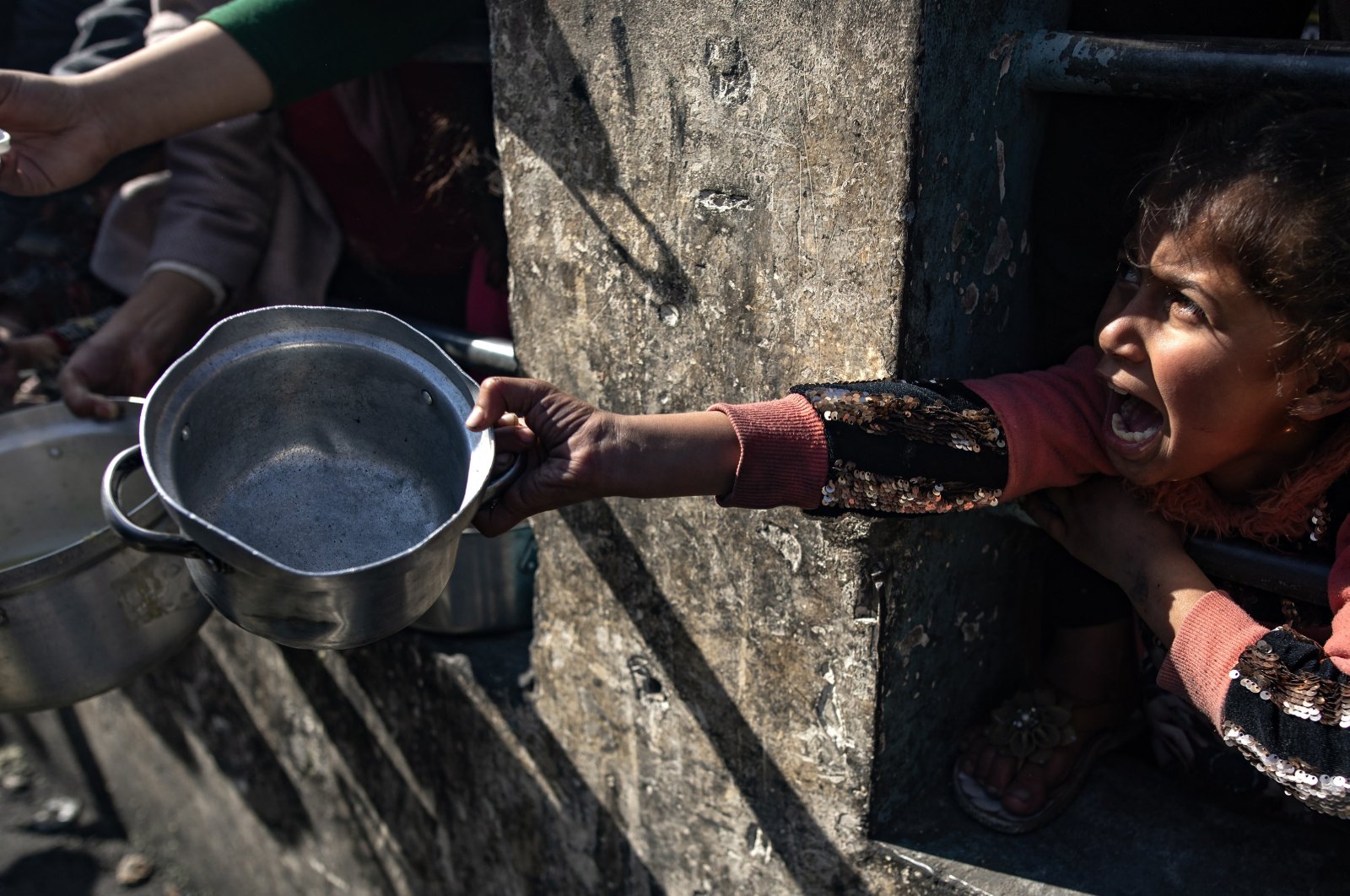
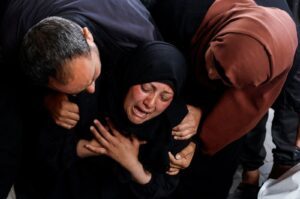
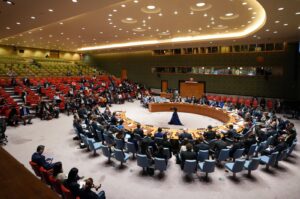




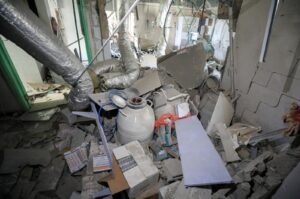


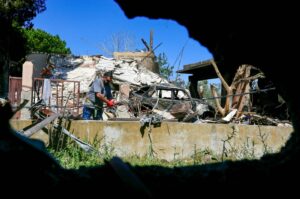




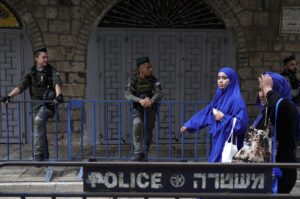

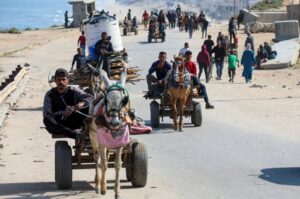

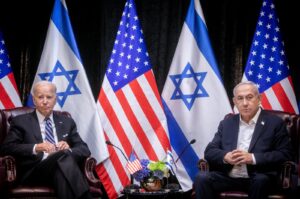

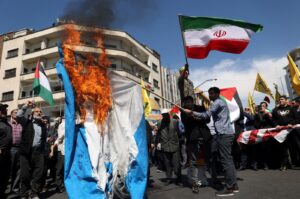
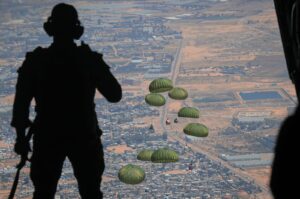
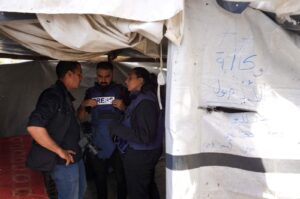

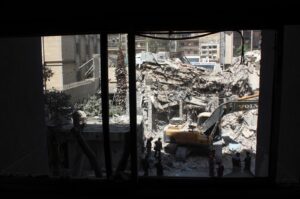


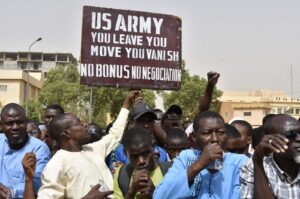

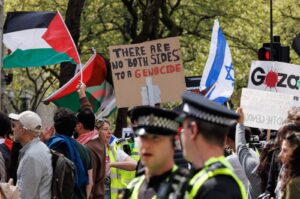

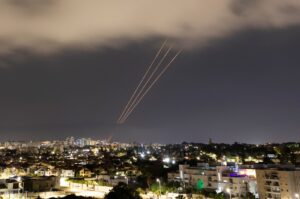
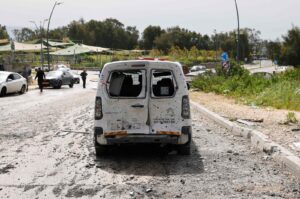

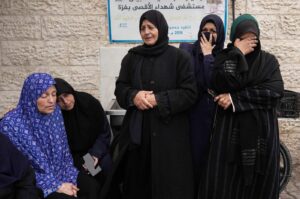



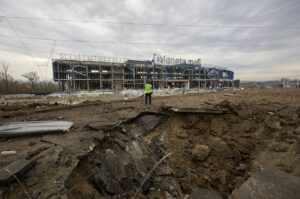
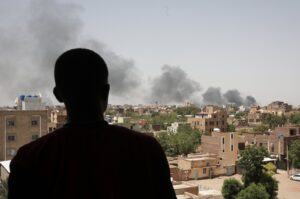


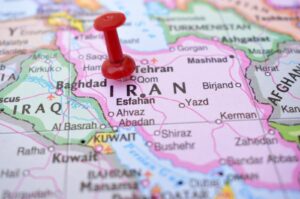
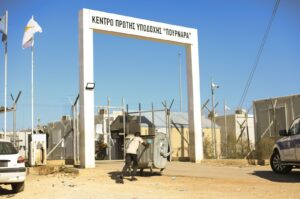

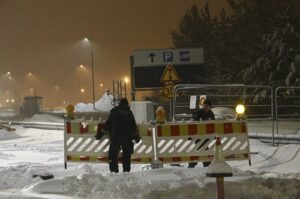
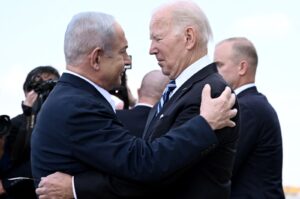
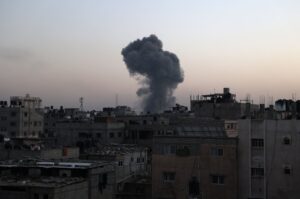

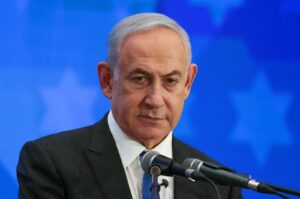
Be First to Comment